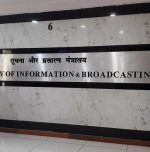Controversies of CBFC

The body of Indian film censoring, the Central Board of Film Certification or CBFC, has just strengthened its restrictions by requiring No-Objection Certificates, or NOCs, from politicians in order to greenlight any movies made about them. Of course, this is disturbing and discouraging to filmmakers, specifically those who specialize in documentaries.
For example, Khushboo Ranka and Vinay Shukla, the creators of the movie An Insignificant Man, which trails the political journey of Arvind Kejriwal, began the making of their film without realizing that the head of the CBFC, Pahlaj Nihalani, would ask them for NOCs from not only Kejriwal himself, but also Prime Minister Narendra Modi and Shelia Dixit, the former Chief Minister of Delhi.
Shukla and Ranka were outraged at the CBFC’s “ridiculous demand”, and began to be discouraged about making documentaries in general, since the makers of them are always punished for doing it. Their case isn’t the only example of tight bars being kept around real-life references either.
The movie Udta Punjab was asked to remove all references to Punjab itself, Sonakshi Sinha’s movie Noor had to remove Barkha Dutt because any references to real-life characters without consent of the censors were not permitted, and Modi Ka Gaon required NOCs from both the Prime Minister’s Office (or PMO) and the Election Commission.
Some films have won their battles against the CBFC, with the Bombay High Court even intervening in the case of Udta Punjab and saying they are not able to censor films.
People over the years have been bringing forth the true nature of the CBFC and Nihalani’s decisions, and sharply criticizing his ways. Nihalani, in defending himself, has said that he is also aiming to preserve the culture and tradition of the country.
However, his decisions come across as incredibly controversial, such as his tag of Alankrita Shrivastava’s Lipstick Under My Burkha as too “lady-oriented” and redlighting the film, which greatly angered Shrivastava until FCAT allowed it to be greenlighted.
Thus, filmmakers all around the Indian movie industry are discouraged from many of their ideas, under the fear that the censoring boards will just kill them.
Shukla expresses her frustration at the nature of the film culture being created around this, where meaningful and questioning work could forcibly be reduced to tasteless wastes of time, and wondering what filmmakers like them are to do about it.
Image by Pete Linforth from Pixabay(Free for commercial use)
You may also like
Image Reference: https://pixabay.com/illustrations/censored-secret-confidential-1726364/
Recent Posts
- Upper House elections set for March 16 across 10 statesThe Rajya Sabha will see several members retire soon.
- New tax rulebook signals major compliance reset from AprilThe Income Tax Department has released draft Income-tax Rules, 2026, alongside new forms.
- Rare “Ring of Fire” Solar eclipse lights up the skyThe year’s first eclipse on February 17 featured a stunning annular solar eclipse. The Moon covered the Sun’s centre, forming a bright “Ring of Fire.”
- Upper House elections set for March 16 across 10 states
What’s new at WeRIndia.com
News from 700+ sources
-
Indian Americans largely disapprove of Trumps first year job performance, but Democrats do not benefit: Survey
-
Water Board Begins Jalamandali Basti Bata Today
-
Indias Russian Crude Purchases For April Slow, Discounts Widen To Three-year High
-
Trump presses Iran to make meaningful deal, appears to set 10-day deadline
-
Congress Leader Targets Bandi Over Development Promises, Alleges Secret BJP, BRS Deal
-
Ramchander Advocates Shivajis Ideals
-
WeRIndia – A News Aggregator
Visit werindia.com for all types of National | Business | World | Politics | Entertainment | Health related news and much more..









Leave a Reply